Image Gallery: Stunning Byzantine Mosaic
Amazing Mosaic
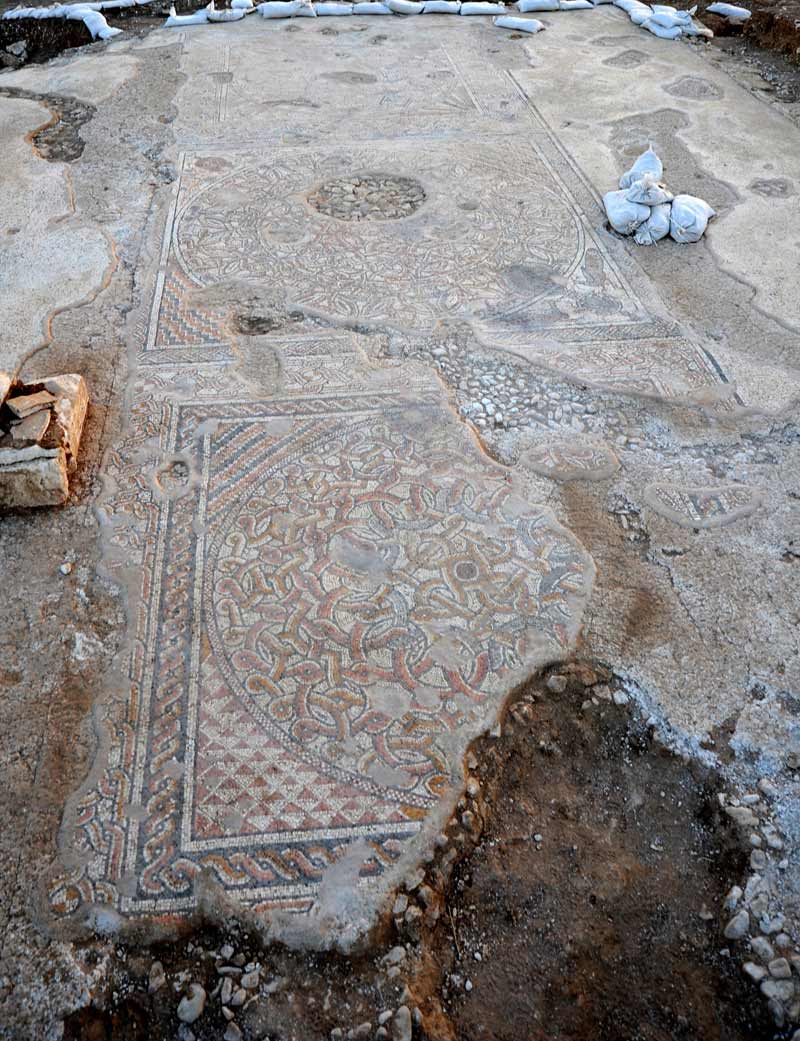
Archaeologists have uncovered an "extraordinary" mosaic that would've been used as the floor of a public building during the Byzantine Period in what is today Kibbutz Bet Qama, in the B'nei Shimon region council in Israel, the Israel Antiquities Authority (IAA) announced.
Flanked by peacocks
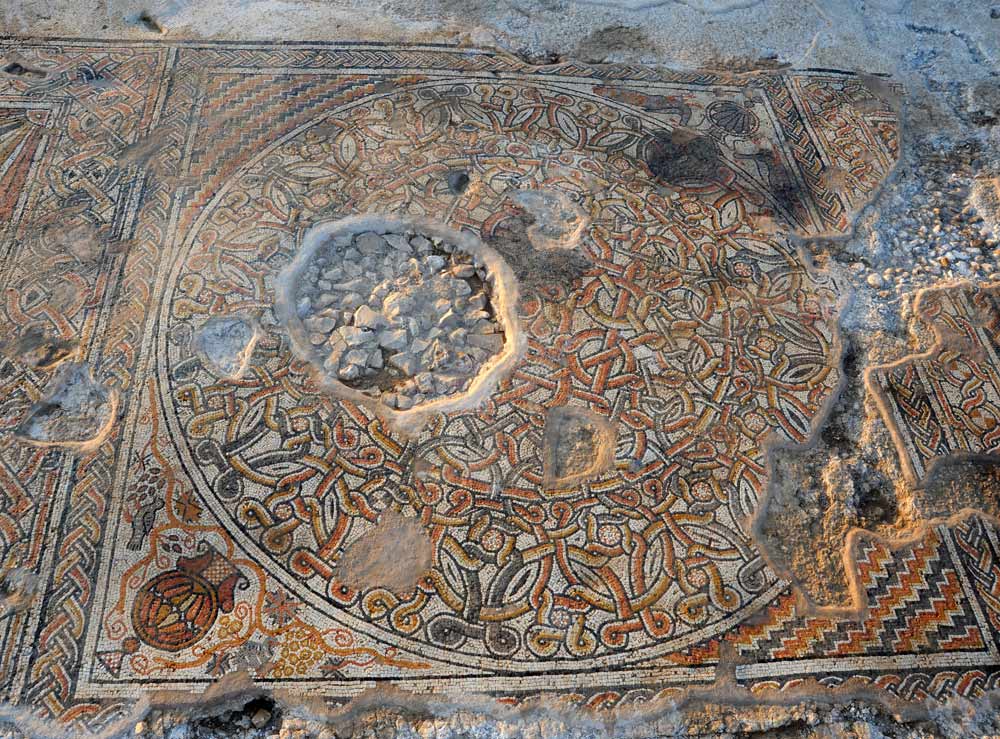
The mosaic discovered prior to construction of an interstate in Israel, was decorated with geometric structures and amphoras, or vessels for holding wine. The amphoras were also decorated, for instance, one was flanked by a pair of peacocks.
Pair of doves
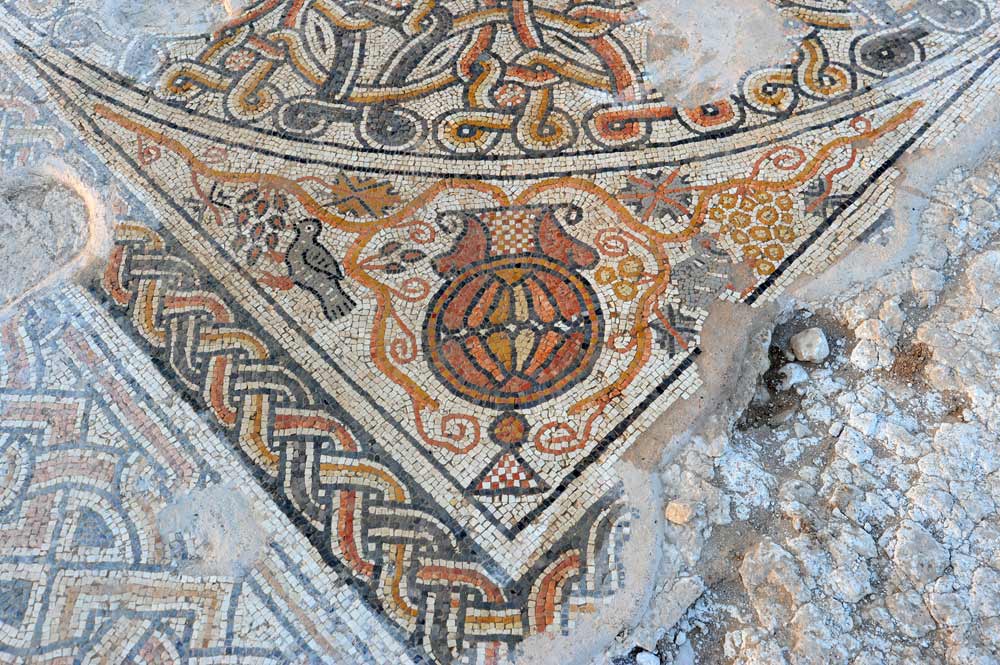
One of the amphoras was decorated with a pair of doves pecking at grapes on a tendril. The researchers note the mosaic and public building where it was found would not have had any religious purpose, though they aren't sure what the building was used for.
Extraordinary find
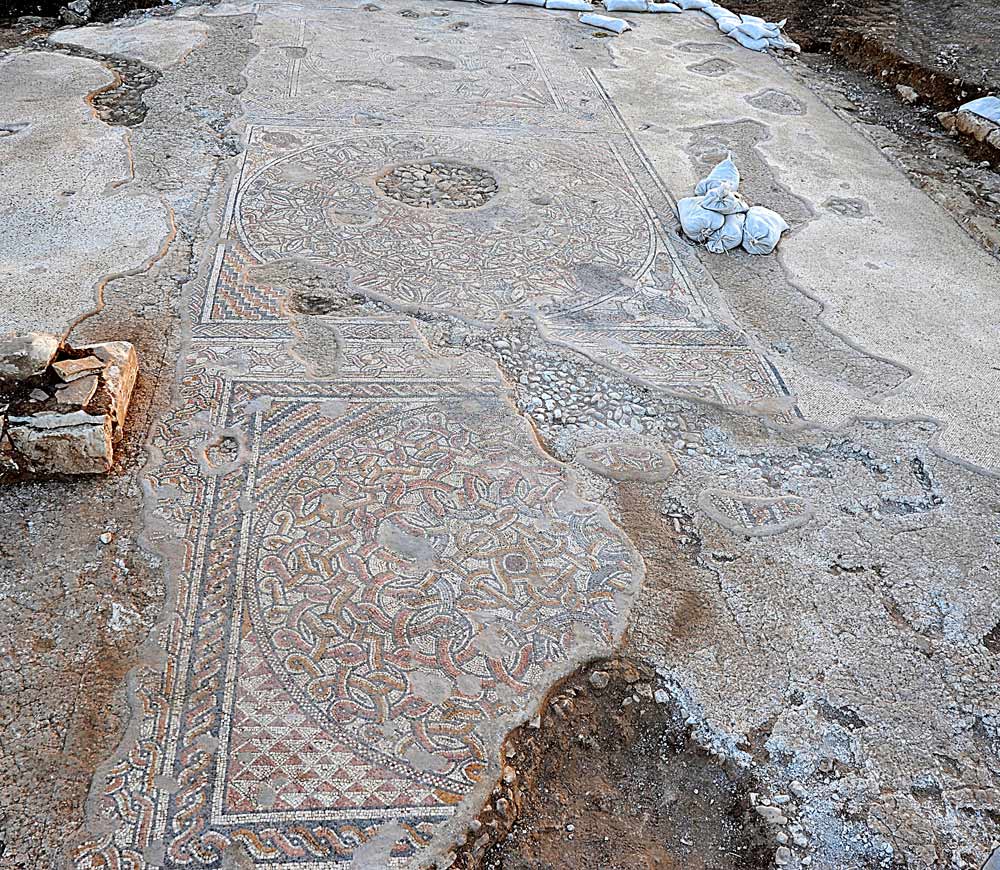
"The find of this mosaic is extraordinary, the size of it and the [condition] goes beyond what is usually found," said IAA's Davida Eisenberg Degen. "This is an unusual find."
Wine installation
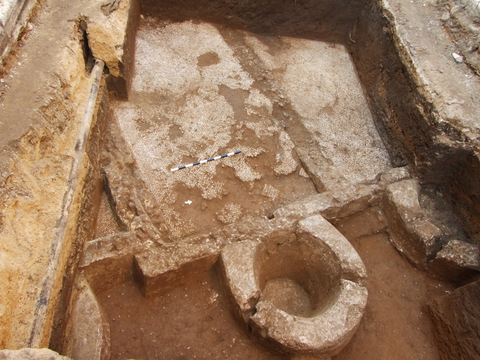
Other Byzantine Period findings have included an installation that would have been part of a 1,500-year-old wine-making factory discovered underneath a street in the ancient city of Jaffa, now part of Tel Aviv.
Wine-making factory
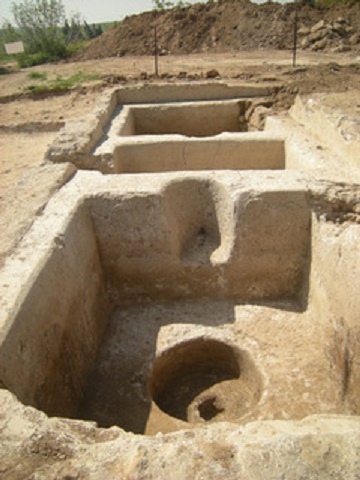
At a site near Hamei Yo'av in Israel, researchers have also found part of a wine-making factory, shown here.
Christian lantern
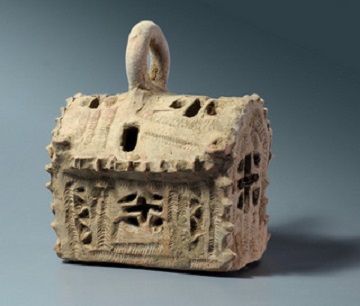
At that same wine-making factory, researchers also found a ceramic lantern fashioned in the shape of a miniature church and carved with crosses; the lantern suggested the centuries-old wine factory was owned by a Christian.
Sign up for the Live Science daily newsletter now
Get the world’s most fascinating discoveries delivered straight to your inbox.
Jeanna Bryner is managing editor of Scientific American. Previously she was editor in chief of Live Science and, prior to that, an editor at Scholastic's Science World magazine. Bryner has an English degree from Salisbury University, a master's degree in biogeochemistry and environmental sciences from the University of Maryland and a graduate science journalism degree from New York University. She has worked as a biologist in Florida, where she monitored wetlands and did field surveys for endangered species, including the gorgeous Florida Scrub Jay. She also received an ocean sciences journalism fellowship from the Woods Hole Oceanographic Institution. She is a firm believer that science is for everyone and that just about everything can be viewed through the lens of science.









